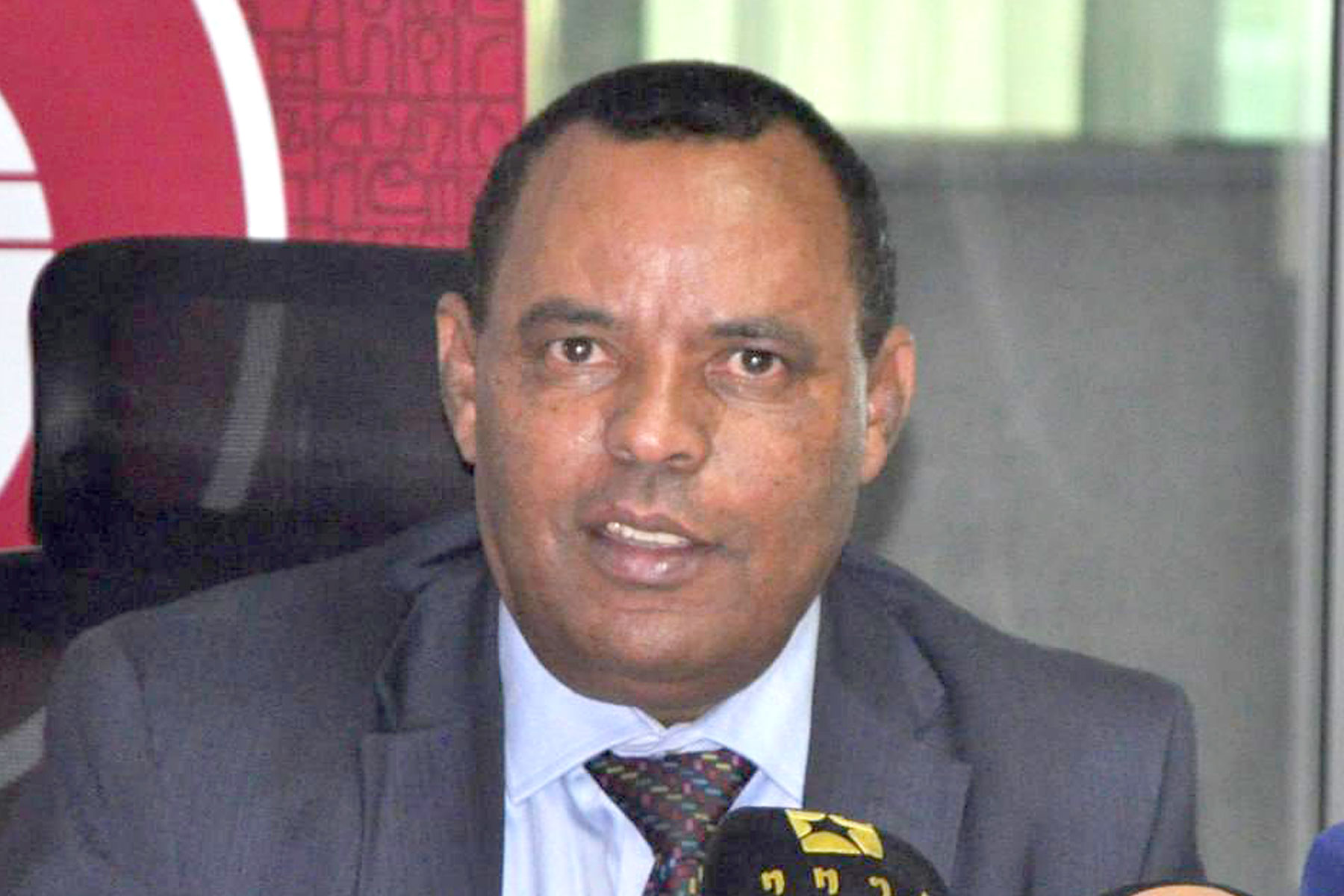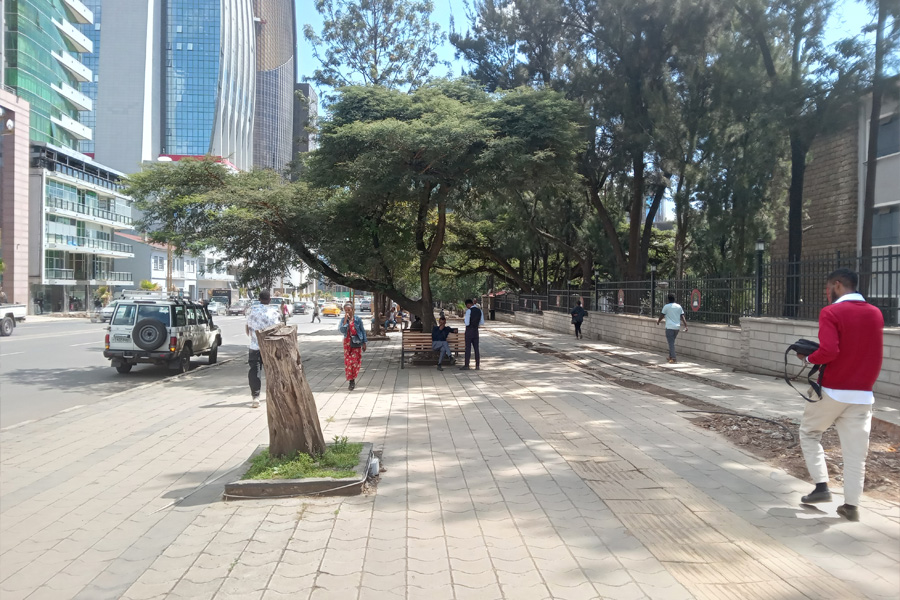
Ethiopia’s largest commercial tea estate raised prices for out-growers a quarter following a visit to its farms by officials and experts from the Ministry of Agriculture and the Coffee & Tea Authority.
Executives of Ethio Agri-CEFT, a subsidiary of the MIDROC Investment Group (MIG), have made the decision after mediation efforts from these authorities. Officials found the dispute brewing between the smallholder farmers and the company’s executives as a pressing issue as tea export revenues dropped. Tea shipped abroad generated 1.9 million dollars last year, a 36pc dip. Green, black, and orthodox tea are produced in Ethiopia.
Shafi Omer, deputy head of the Authority, was among the officials who toured Agri-CEFT’s Gumero and Wushwush farms and sites under out-growers two months ago.
These tea estates under Ethio Agri-CEFT are two of the three largest tea plantations in the country, acquired from the state two decades ago through privatisation. Ethio Agri-CEFT grows the cash crop on 2,800 hectares, harvesting close to 3,000tns annually. Its plant can process 200qtl of tea a day. The company exports close to a third of its product. Its management has not been happy with the quality of tea supplied by smallholder farmers.
The out-growers too voice concerns about selling prices, which they say do not reflect rising production costs observed in recent years. A little more than 500 out-growers have been supplying Ethio Agri–CEFT since 2005, selling export-standard tea at six Birr a kilogram. They grow tea on 527hct, accounting for over 10pc of Ethio-Agri-CEFT’s production.
Smallholder farmers have been lodging complaints to the authorities through cooperatives, disclosed Aserat Mekuria, head of the Authority’s branch in the Southwestern Regional State.
Out-growers are organised under eight cooperatives, each allocating an average of 1.4hct of land to tea farming. A hectare can yield up to 2.5tn of export-standard tea annually, while the volume grows to six tonnes in standard green tea leaves.
Ethio Agri-CEFT avails credit to help farmers cover the costs of seedlings, fertiliser, and pesticides. However, the company limits the loans to 20pc of the forecasted selling price. Out-growers are expected to pay back the loan within six months.
Zewdu Hailu, 52, grows tea on a one-hectare plot in the vicinity of the Wushwush estate, near Bonga of the Keffa Zone. A father of five, Zewdu used to supply 500qtl of tea to Ethio Agro-CEFT annually. However, he has seen productivity drop by half in recent years due to the growing cost of production.
“Growing tea is labour intensive,” he told Fortune.
Zewdu employs up to 10 daily labourers to pluck tea leaves manually. He pays 2.5 Br for a kilo of leaves.
Plucking accounts for nearly a third of production expenses, according to Adane Tuffa (PhD), an agricultural economist. He advised that modern technology can lower reliance on labour and slash production costs.
Operating under the East African Agri-Business, Chewaka Tea Development Plc has been in commercial-scale tea production since 1995. Owned by Bizuayehu Tadelle, it runs a 600hct estate in the southwest but ceased exports last year. Power outages at its processing plant are to take the blame, according to Fikadu Defres, director of an extension service at the Authority.
Ethio Agri–CEFT exported last year, shipping 900tns of tea mostly to Kenya to be traded at the weekly Mombasa Tea Auction.
Kenya is one of the top tea producers globally, after China and India. Last year, China produced 2.6 million tonnes while India harvested close to 1.2 million tonnes. The East African country had over 400,000tns of tea last year. The three countries account for two-thirds of global production.
Ethiopia is nowhere close. Ethio Agri-CEFT, Chewaka and 550 smallholder farmers grow close to 5,000tn annually.
Smallholder farmers like Zewdu, who also grows coffee, have managed to get by cultivating tea adjacent to other crops. Though the authorities hope to see the adjustment to the tea selling price ease the tension, farmers say it will not be sufficient to cover the cost of inputs. Based on the revised rate, smallholder farmers supply tea destined for the domestic market at four Birr a kilo, up by 50pc. Still, they are faced with retail fertiliser prices of up to 4,900 Br a quintal, nearly triple what they paid last year.
Soaring prices forced Zewdu to stop applying fertiliser a year ago, although the recommended volume for tea cultivation is three quintals a hectare.
Ethio Agri-CEFT management begs to differ on the issue.
Kurabachew Zeleke, a farm coordinator, argued out growers’ margins are sufficient.
“The company pays out-growers based on an open agreement, which can be negotiated as necessary,” he told Fortune.
Zewdu wants to see the government intervene before the farmers “lose everything.” However, Fikadu believes setting prices is not the Authority’s mandate.
“What we can do is mediate between the sellers and the buyers,” he toldFortune.
PUBLISHED ON
Aug 13,2022 [ VOL
23 , NO
1163]

Fortune News | May 31,2025

Radar | Nov 21,2018

News Analysis | Apr 13,2024

Viewpoints | Aug 13,2022

In-Picture | Nov 16,2024

Dec 22 , 2024 . By TIZITA SHEWAFERAW
Charged with transforming colossal state-owned enterprises into modern and competitiv...

Aug 18 , 2024 . By AKSAH ITALO
Although predictable Yonas Zerihun's job in the ride-hailing service is not immune to...

Jul 28 , 2024 . By TIZITA SHEWAFERAW
Unhabitual, perhaps too many, Samuel Gebreyohannes, 38, used to occasionally enjoy a couple of beers at breakfast. However, he recently swit...

Jul 13 , 2024 . By AKSAH ITALO
Investors who rely on tractors, trucks, and field vehicles for commuting, transporting commodities, and f...

Jun 28 , 2025
Meseret Damtie, the assertive auditor general, has never been shy about naming names...

Jun 21 , 2025
A well-worn adage says, “Budget is not destiny, but it is direction.” Examining t...

Jun 14 , 2025
Yet again, the Horn of Africa is bracing for trouble. A region already frayed by wars...

Jun 7 , 2025
Few promises shine brighter in Addis Abeba than the pledge of a roof for every family...